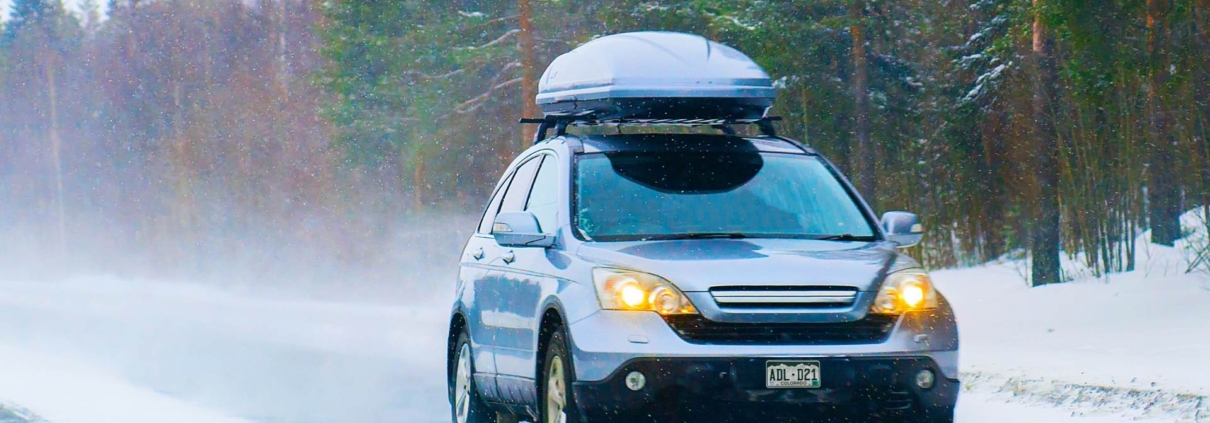Denver SUV Winterization Guide: Preparing Your Vehicle for Cold Weather
Winter in Denver can be a beautiful yet challenging season, with snow, ice, and freezing temperatures. If you own an SUV or 4×4 vehicle in the Mile High City, preparing your vehicle for the winter months is crucial to ensure safe and trouble-free driving. We’ll walk you through the essential steps to winterize your SUV effectively, including tips on winter tires, antifreeze, and more.
1. Invest in Winter Tires:
One of the most significant winterization steps for your SUV is investing in winter tires. Winter tires are designed with special rubber compounds and tread patterns to provide better traction on icy and snowy roads. Consider switching to winter tires for all four wheels to enhance your vehicle’s stability and safety during winter conditions.
2. Check Tire Pressure Regularly:
Proper tire pressure is critical for safe winter driving. Cold weather can cause tire pressure to drop, so check your tire pressure regularly and keep it at the manufacturer’s recommended levels. Under-inflated tires can reduce traction and fuel efficiency.
3. Ensure a Full Gas Tank:
During the winter, it’s advisable to keep your gas tank as full as possible. A full tank helps prevent condensation from forming inside the fuel system, which can lead to fuel line freezing and other issues. Plus, in case of unexpected delays due to weather, you’ll have enough fuel to stay warm.
4. Use the Right Antifreeze:
Antifreeze (coolant) is essential for preventing your vehicle’s engine from freezing in cold temperatures. Make sure your SUV’s antifreeze mixture is appropriate for the winter climate in Denver. A mixture of 50% antifreeze and 50% water is generally recommended for winter use.
5. Test and Maintain Your Battery:
Cold weather can be hard on your vehicle’s battery. Have your battery tested to ensure it’s in good condition, and replace it if necessary. Keep the battery and its connections clean, and make sure the terminals are tightly secured to prevent starting problems in the cold.
6. Change Your Oil and Use the Right Grade:
Using the right engine oil is crucial in cold weather. Consider switching to a lower-viscosity oil that flows more easily in cold temperatures. Check your owner’s manual or consult with a mechanic to determine the appropriate oil grade for winter use. Additionally, regular oil changes are vital to keep your engine running smoothly during winter.
7. Inspect and Replace Wiper Blades:
Visibility is paramount during winter driving. Inspect your wiper blades for wear and tear, and replace them if they are not functioning correctly. Consider using winter-specific wiper blades that are more effective at clearing ice and snow.
8. Carry an Emergency Kit:
Be prepared for winter emergencies by carrying an emergency kit in your SUV. Your kit should include items like a flashlight, blankets, gloves, a first-aid kit, jumper cables, a snow shovel, and non-perishable food and water.
9. Check Your 4×4 System:
If you have a 4×4 SUV, make sure your four-wheel-drive system is working correctly. Test it in a safe, open area to ensure it engages and disengages smoothly. If you encounter deep snow or ice, four-wheel drive can provide added traction and stability.
10. Maintain Brakes and Lights:
Finally, ensure your brakes and lights are in excellent working order. Snow and ice can increase stopping distances, so having well-maintained brakes is crucial. Properly functioning lights, including headlights, taillights, and turn signals, are essential for visibility in winter conditions.
Conclusion:
Denver winters can be unpredictable, but with the right preparation, your SUV or 4×4 vehicle can handle the challenges that cold weather brings. By following these winterization tips and taking your SUV to Parker 4×4 before winter hits, you’ll not only enhance your vehicle’s safety and performance but also enjoy a more comfortable and stress-free winter driving experience in the Mile High City. Stay safe, stay warm, and embrace the beauty of Denver’s winter wonderland with confidence in your winter-ready SUV.



